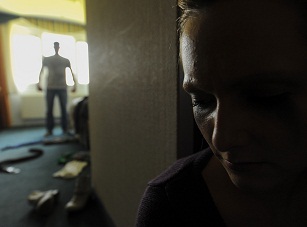Coercive or Controlling Behaviour is Now a Crime
Coercive or Controlling Behaviour is Now a Crime

Coercive or controlling domestic abuse, even if it stops short of physical violence, is now a crime punishable by up to five years in prison.
The Serious Crime Act, introduced at the very end of 2015, come as Citizens Advice reports a significant increase in the number of victims seeking help over the past year.
The charity said it had supported more than 5,400 people suffering from domestic abuse in the year to October 2015. This figure includes 3,000 cases of emotional abuse and 900 instances of financial abuse.
The law is intended to help victims experiencing the type of behaviour that stops short of serious physical violence but amounts to extreme psychological and emotional abuse.
The Crown Prosecution Service‘s new powers will enable it to bring charges where there is evidence of repeated, or continuous, controlling or coercive behaviour within an intimate or family setting. The CPS says such abuse can include a pattern of threats, humiliation and intimidation, and also behaviour such as preventing a partner socialising, controlling their access to social media, surveillance through apps or dictating what they wear.
Prosecutors are being trained to recognise patterns of abusive behaviour
Such controlling or coercive behaviour causes someone either to fear that violence will be used against them on at least two occasions, or serious alarm or distress which has a substantial effect on their usual day-to-day activities.
Director of Public Prosecutions, Alison Saunders, said: “These new powers mean this behaviour, which is particularly relevant to cases of domestic abuse, can now be prosecuted in its own right. Police and prosecutors are being trained to recognise patterns of abusive behaviour which can be regarded as criminal abuse. We will do everything in our power to tackle this abhorrent crime.”
“When reviewing these cases, prosecutors will be trained to look at the overall effect this controlling and/or coercive behaviour had on the victim,” added Saunders.
But police are failing to use the new law
A Freedom of Information (FoI) request suggests that the new law has been used just 62 times in the six months since it was introduced.
Eight out of 22 police forces in England and Wales have not charged a single person with the offence, according to the FoI request, while nine forces have made two or fewer charges since the new law came into effect.
Three police forces – Kent, Hertfordshire and Norfolk – each reported 10 or more prosecutions, but most forces launched fewer than two coercive control actions between December 2015 and June 2016. Nine forces have yet to charge a single person under the law.
Lucy Hastings, a director at the independent charity Victim Support, says: “These findings demonstrate that there is still some way to go in improving the support provided to victims and witnesses, before they will be getting the information they need and the respect they deserve.”
“All police staff should be fully aware of their obligations under the Victims’ Code and measures put in place to ensure that those obligations are being met,” added Hastings.
Technology is fuelling Britain’s hidden domestic abuse epidemic
A study by Women’s Aid suggests that more than a third (40%) of young women in the UK have experienced “controlling behaviour”, a form of domestic abuse which includes having their phone, messages, emails and social media accounts checked.
However, the charity says that only a small fraction of respondents recognised such behaviour as a type of “coercive control”, which is now illegal under the Serious Crime Act 2015.
Many of those interviewed by Women’s Aid were not aware of the recent law and considered some of the behaviour it encompasses as ‘normal.’
One in 20 said that being scared of a partner was part of a “normal relationship”, the research found, while 10% thought having their phone repeatedly checked was acceptable. Only one in three respondents knew what coercive control was.
Charities working with domestic violence victims say psychological abuse almost always either precedes or continues alongside physical attacks.
West London’s leading criminal defence solicitors
We have one of the leading teams of criminal specialists in West London and the South East. If you are facing a serious criminal charge, you can contact a member of the IBB’s Criminal Defence team, call us on 0330 999 4999 for immediate emergency representation. You can also contact us free via Whatsapp on 07899 953415 or Blackberry messenger: PIN 287DA137.
We are based in Uxbridge, West London and cover all surrounding areas.
